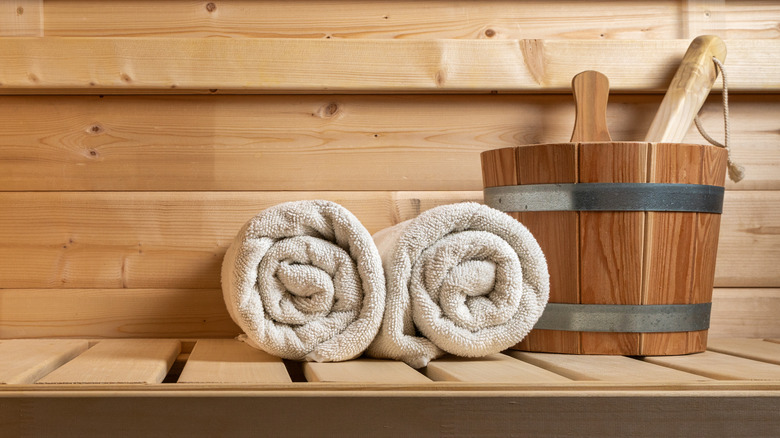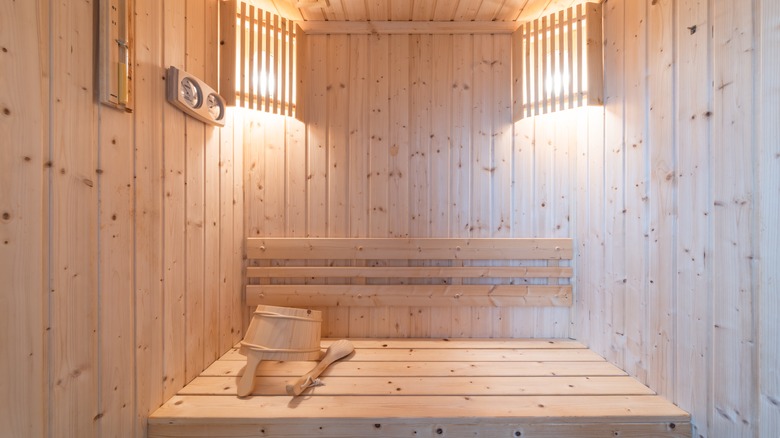What To Consider Before Installing A Sauna In Your Home
Saunas have been around for a while — for thousands of years, in fact. They were first invented in Finland and were first used as a way to bathe or shower; and even though early saunas were meant to be clean places, we probably wouldn't have been too enamored with them since those rooms were made with logs and were quite smoky inside. The coming of the Industrial Revolution saw the addition of a metal chimney that allowed smoke released by the heated rocks to disperse outside, and by the mid-20th century, saunas powered by electricity were in use.
Today homeowners have multiple types of saunas to choose from if they are thinking about installing one at home; some options include a traditional sauna built with cedar wood; a walk-in shower with built-in steam pipes that doubles up as a sauna; and an infrared sauna, which uses lamps as sources of heat.
Sauna fans are quick to rave about the benefits of having these low-humidity rooms around, so it's no surprise then that people have begun thinking about adding them to their homes. But are home saunas really the way to go?
The pros of having a home sauna
As with all changes you want to make to your home, you'll need to work out the pros and cons involved in adding a sauna — and the best reason we can think of for having one in your home is exclusive access. Rather than heading out your door in search of a facility that meets both your needs and hygiene standards, you can stay at home, unwind in your own sauna, and not have to face a commute when you feel completely refreshed.
Those of us who might be looking to invest in a sauna will say the facility does more than help folks unwind. Because heat causes your heart rate to go up and your blood vessels to dilate, your circulation improves as well, in a way that Medical News Today compares to light to moderate exercise. Saunas could be a way to improve heart health, although too much sauna has also been linked to high blood pressure risk. A sauna's health benefits could also make its presence more attractive to a home buyer, particularly if you are looking to sell and if you live in a colder region. In this instance, a sauna can also be a good way to set your property apart from someone else's in the same neighborhood who might also be looking to sell.
Why having a home sauna could be a bad idea
Unfortunately, as with many things, there is also a flip side to having a sauna at home, which mostly involves cost. Forbes estimates that installing a home sauna will set you back an average of $4,500, depending on how much space you want to dedicate, what material you might want to use, and what kind of sauna you might be looking to install — and that's just the start.
Sauna Helper further estimates that it can cost an average of 31 cents an hour to run an electric-powered sauna, but this figure changes according to the size of the room and the type of heater it uses. Other than operating costs, you'll need to consider maintenance and repairs, which can cost just under $450 a year. There is also cleaning maintenance to consider: saunas need to be cleaned once a week, and while doing it yourself might be cheap, hiring someone could cost as much as $50 per hour more.
Saunas can be considered a cost center in other ways because having steam saunas also involve added risk of increasing the moisture levels around your house, which in turn, could lead to mold and mildew, particularly if the steam emitted by the sauna is somehow trapped in your home.


